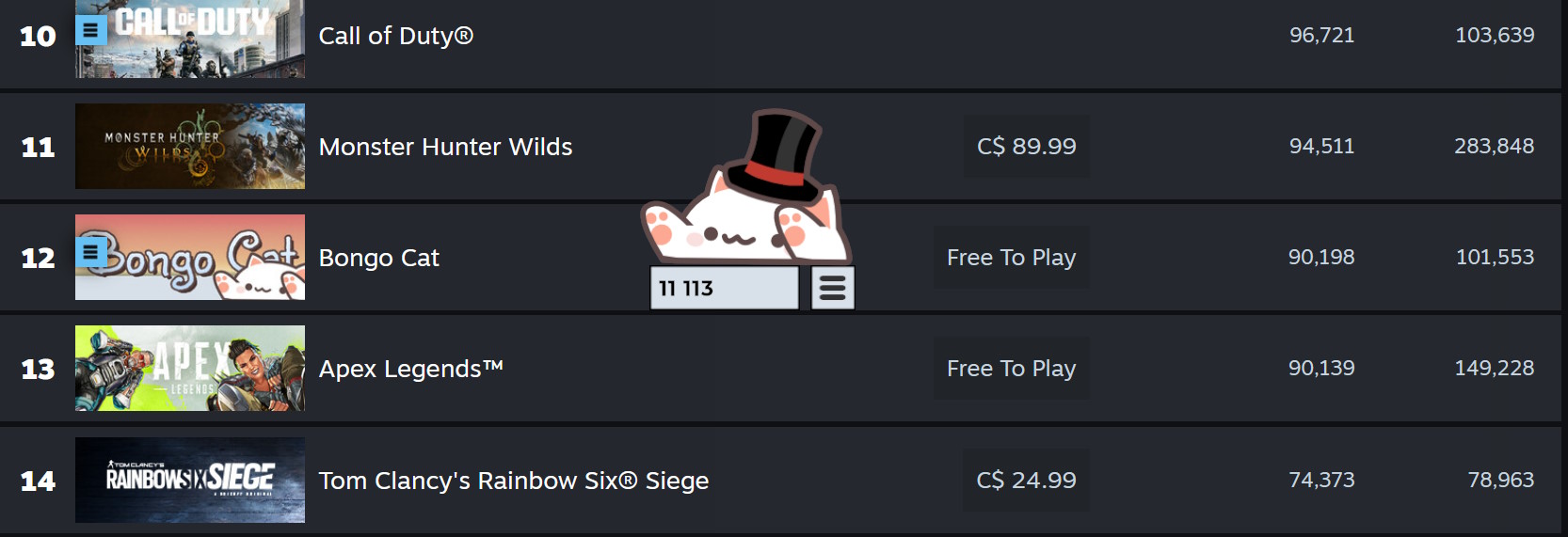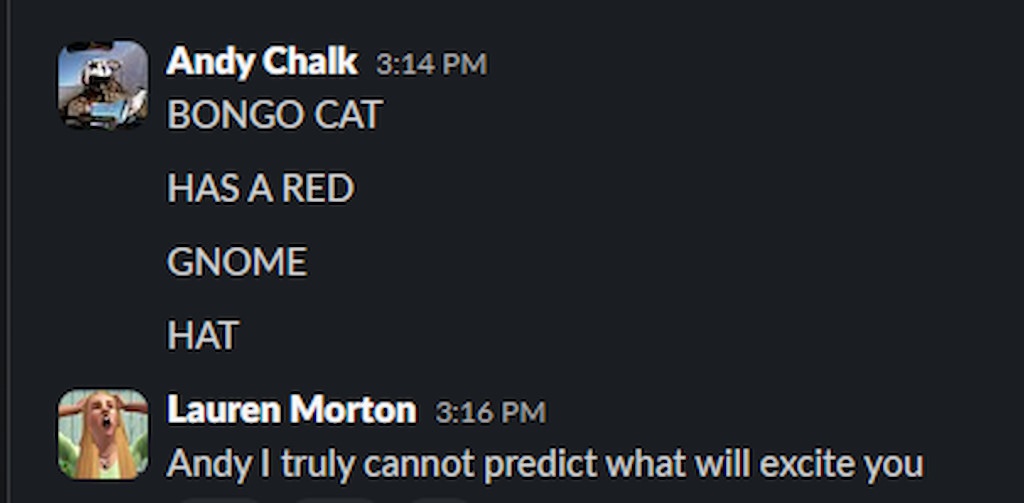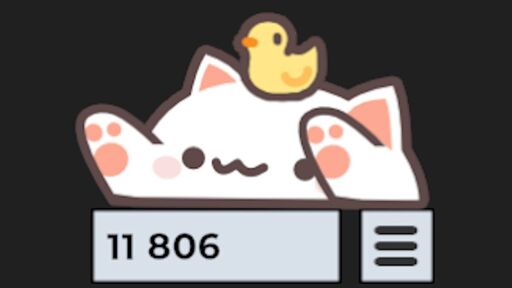PC Gamer editor Lauren Morton wrote in February that “desktop pets are so back,” and holy cow she was not wrong. One of the biggest games on Steam right now is a little doodad that puts a cute white kitty on your screen who baps an imaginary bongo drum every time you click or type.
Bongo Cat, as it’s called, is really just that simple. Add it to your Steam account—it’s free—install it, run it, and there he is, taking up a couple square inches of screen space. The Windows taskbar is Bongo Cat’s natural home, but you can move him wherever you like. After that, he’ll happily bap away as quickly as you type or click, while a counter underneath tracks your tally.

(Image credit: Marcel Zurawka)
And, yeah, that’s it. Yet somehow, Bongo Cat hit a peak concurrent player count of more than 101,000 today, and is currently holding the number 12 spot on Steam’s most played chart, between Monster Hunter Wilds and Apex Legends.

(Image credit: Marcel Zurawka)
Being free is no doubt part of that, as is the fact that once Bongo Cat is running, there’s really no reason to stop him. Bongo Cat also earns hats as he frantically smacks at the inside of my screen, and I have to admit my discovery of that fact led to an exciting shared moment with my coworkers.

(Image credit: Future)
Well, I was excited. Them, maybe not so much.
But I think Lauren really nailed the resurgent appeal of desktop pets in February, when she wrote that they’re “quintessentially PC” creations, especially now that ultrawide and multi-monitor setups are so common and we don’t have to worry about their potential impact on performance.
“No matter what I’m doing at my desk—shopping, gaming, working, socializing—there’s always room in the corner for my frog friend to mow his lawn,” she wrote about Rokua’s Idle Island, the desktop pet that had half of PC Gamer in thrall earlier this year. “Last week, I watched a little critter take a dump on the article I was writing in Google Docs. This is a joy and a burden reserved for users of personal computers.”
It’s the same with Bongo Cat. I’ve now got him shuffled off into the corner so I don’t even see him most of the time, but every now and then I glance over and there he sits, paws up and a big uwu smile, ready to start bap-bap-bapping the moment I put fingers to keys.
A little part of me wonders if maybe there’s a competitive element to it—I could be the first person at PC Gamer to hit that one million Bongo Beat achievement!—but mostly, it’s just cute, right? Cute, easy, and harmless—really, is it any wonder people are after a little bit more of that in their lives?

Best laptop games: Low-spec lifeBest Steam Deck games: Handheld must-havesBest browser games: No install neededBest indie games: Independent excellenceBest co-op games: Better together
From PCGamer latest via this RSS feed
Has anyone checked that it’s as harmless as this author says? It’s not spyware or mining crypto?
Always running app with keyboard access, could be a straight up keylogger… Might not be today, but who knows what slips in in an update
Don’t bother. It’s a common low effort game to farm marketplace transaction fees. I made another comment with a short explanation and also linked a longer video about the whole scheme.
Don’t play this game or any of the games like it.
These games flood Steam with the pure purpose of making the “developers” free money from marketplace transactions.
Here’s a video explaining the first game that got popular doing this:
https://www.youtube.com/watch?v=aitVHsg0rWA
They create some zero effort “game”, then slap a handful of marketable inventory items in it. They then artificially inflate the value of a handful of the items so that they cost several dollars on the community market. The devs and Steam both make money on every transaction made.
I shudder to imagine the vet bills for my digital cat.




